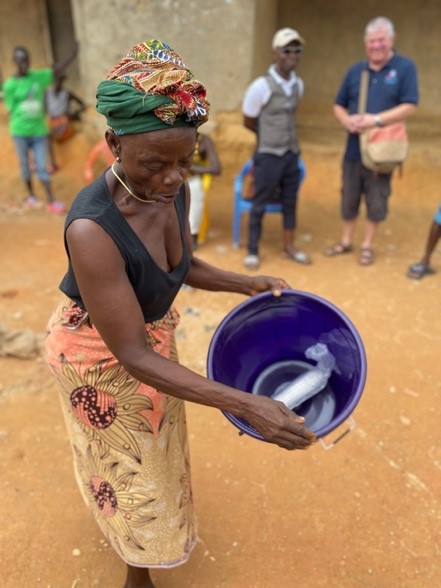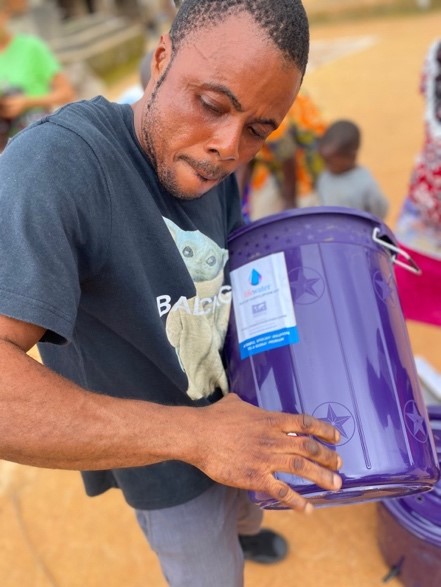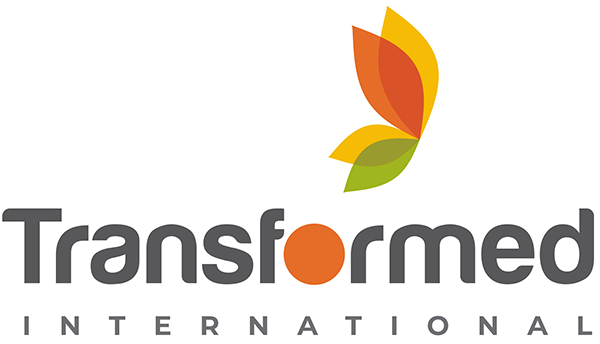First Lifewater Project in Sierra Leone!
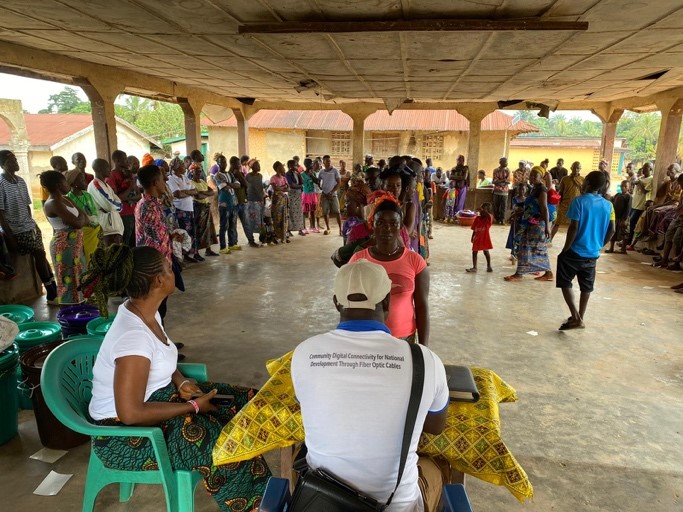
What a privilege it was to be able to donate 150 Lifewater Kits to families in Nyanyahun, Kailahun District, Sierra Leone. This project was partly funded by private donations with some assistance from The Aall Foundation
Distribution Dates: 29-31st November 2024
Population: 2,785
Average household size Kailahun: 7.8 (2022 – Global Data Lab)
Households: 357 (approx.)
School: Primary School
School Population: 200 (approx.)
Health Facilities: None
Kailahun (Hospital) – 3 ½ miles
Morfindor (Clinic) – 2 miles walk through the bush
Local Water Sources: 2 x local hand dug wells
Most people bring water from their gardens in the bush, from streams, the river, or from swamps. People can walk up to 1 mile for water.
Water-borne Health Issues: Diarrhoea, vomiting and rashes.
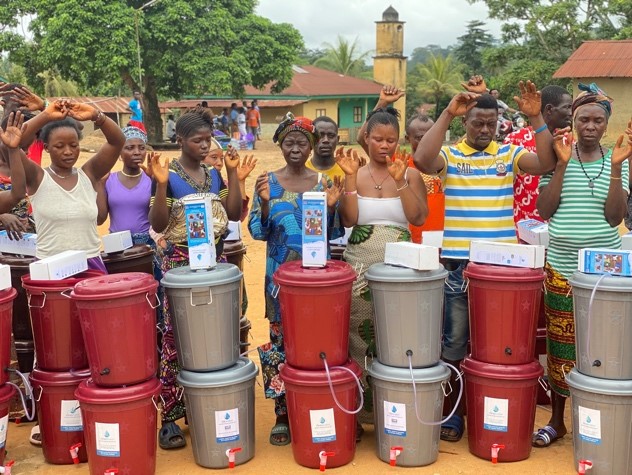
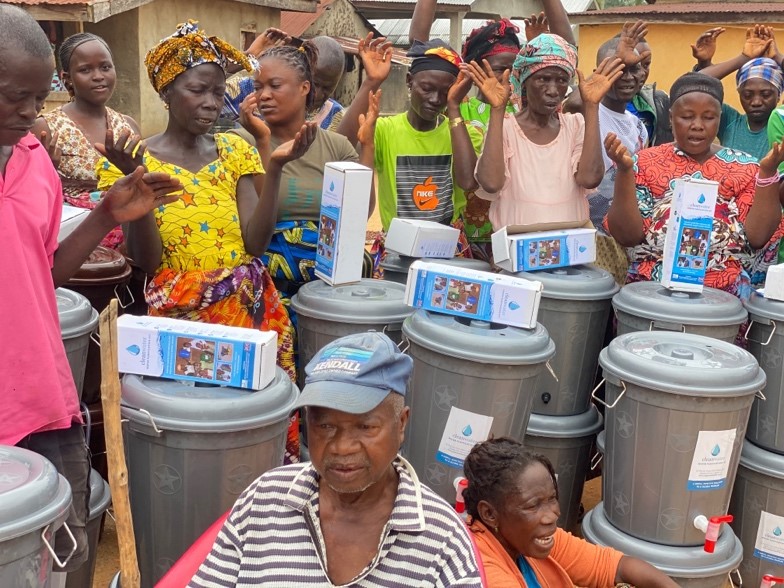
Nyanyahun is about a 20 minute motor bike ride away from Kailahun Town. Prior to the distribution we gathered the team together in Kailahun and held a refresher training with them (In April we had carried out an initial one-day training). We then spent a few hours preparing the buckets and lids ready for the distribution. It was great to see the team using initiative and arranging themselves into a production line. Once all the buckets were prepared the team enjoyed a well-deserved meal prepared by one of the Kailahun residents and her team of ladies.
We travelled to Nyanyahun on three consecutive days to distribute the kits that will provide clean and safe drinking water for between 800 to1,000 people for up to three years. Each day 50 kits were distributed. The recipients were split into three groups.
The team welcomed the recipients and gave a talk about Lifewater UK. They then explained the dangers of drinking dirty water and talked about water borne diseases and how important it is to drink clean water. The group leader then explained and demonstrated step by step how to assemble the Lifewater kits. The recipients assembled their own kits with the help of the Africa Youth Award (AYA) volunteers. Once everyone’s kits were assembled correctly, they were instructed in the use of the Lifewater systems and how to clean and maintain them.
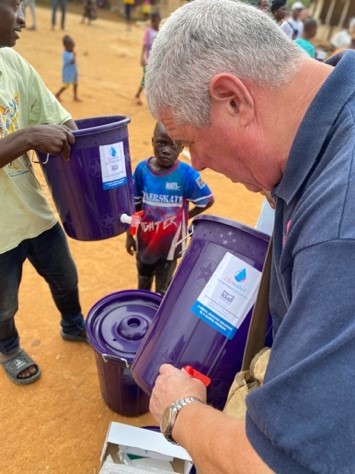
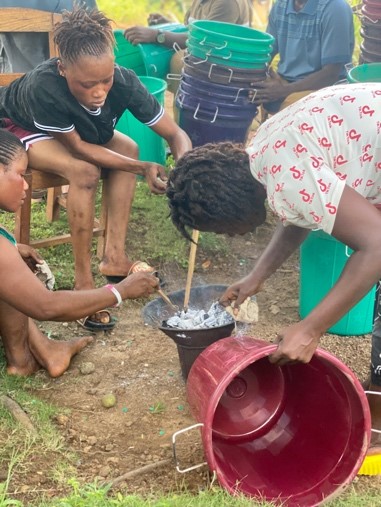
We returned to Nyanyahun on Saturday 9th November and, together with the team of AYA youths, we began the monitoring of the Lifewater systems. It was such a privelege to go inside the homes of those who received the filter systems. It was very encouraging to see that the vast majority of the recipients had made stands to house the two buckets. A small number of people had not yet received the stands from the carpenter, though they had ordered and paid for them. There were a few homes where the kits had not been set up, and the people in these homes were proud to show us their buckets sitting on the stands with no water in them. In these homes we encouraged them to bring water and we showed them once again how to clean the system and how to safely pour the water into the bucket without damaging the ceramic filter.
All stands are now present and all kits correctly assembled. All leakages were identified and rectified during the monitoring process. The primary school in Nyanyahun and the health clininc in nearby Morfindor, which had also received Lifewater systems, were also monitored and the kits are now assembled and working in those locations. Overall the monitoring process was very positive.
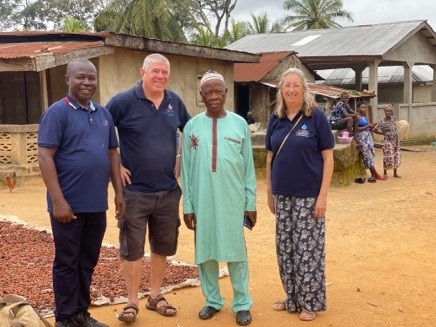
The Paramount Chief, a regional leader in Kailahun, met us in the village on the second day of the distribution to show his appreciation to Lifewater UK and to the Aall Foundation for conducting the distribution in Nyanyahun, which is his own village.
When Lorraine revisits Kailahun in March 2025, she will accompany the team to do the 3 month post distribution monitoring activities.
On behalf of the recipients in Nyanyahun, we would like to thank Lifewater UK, the Aall Foundation and other sponsors for this incredible gift of clean and safe drinking water to their community.
